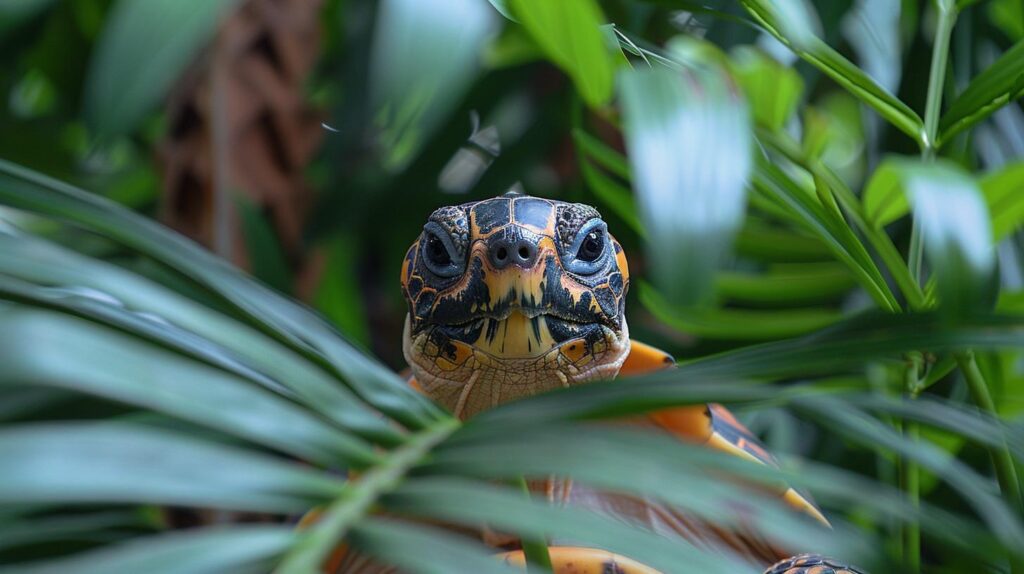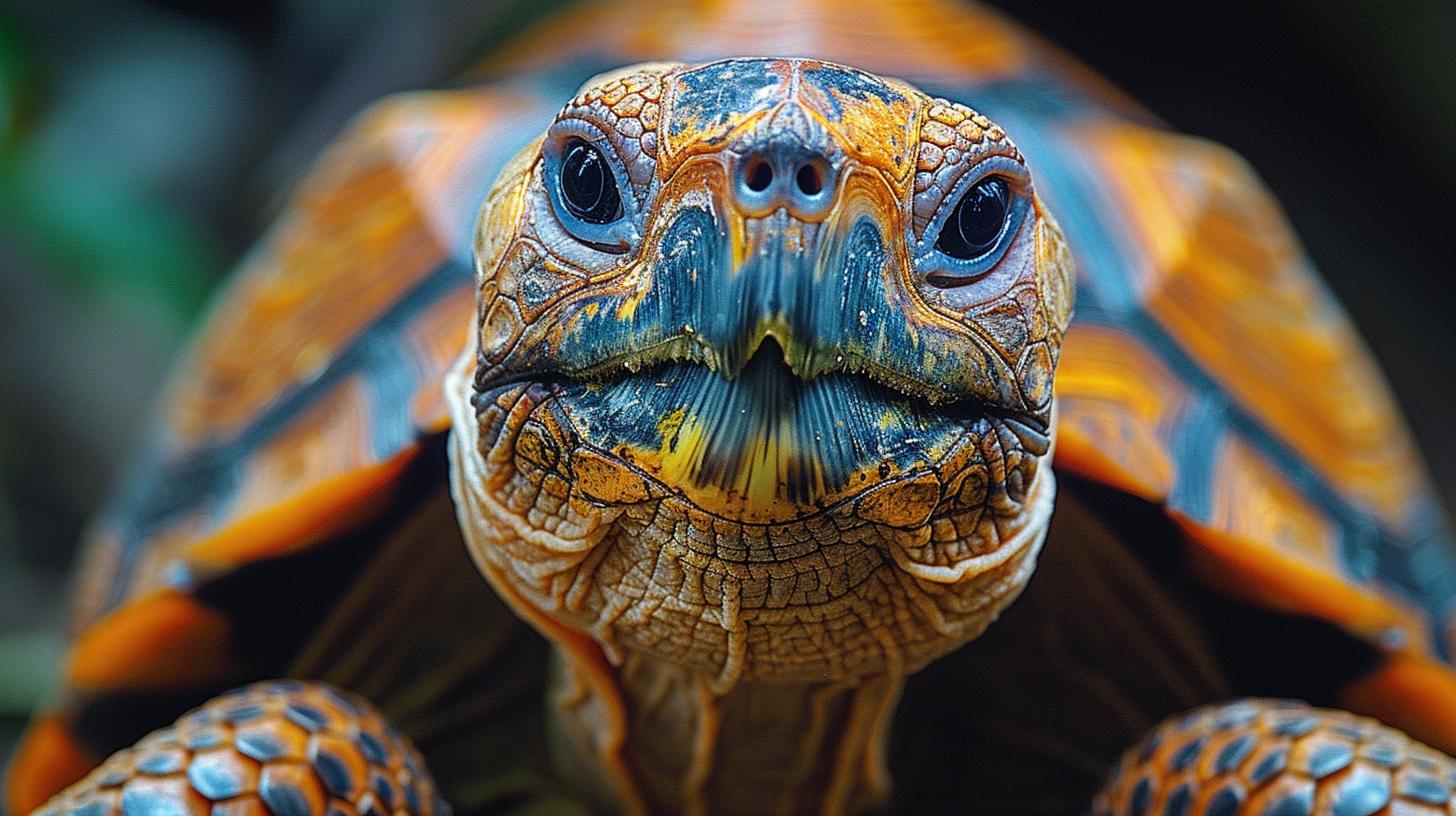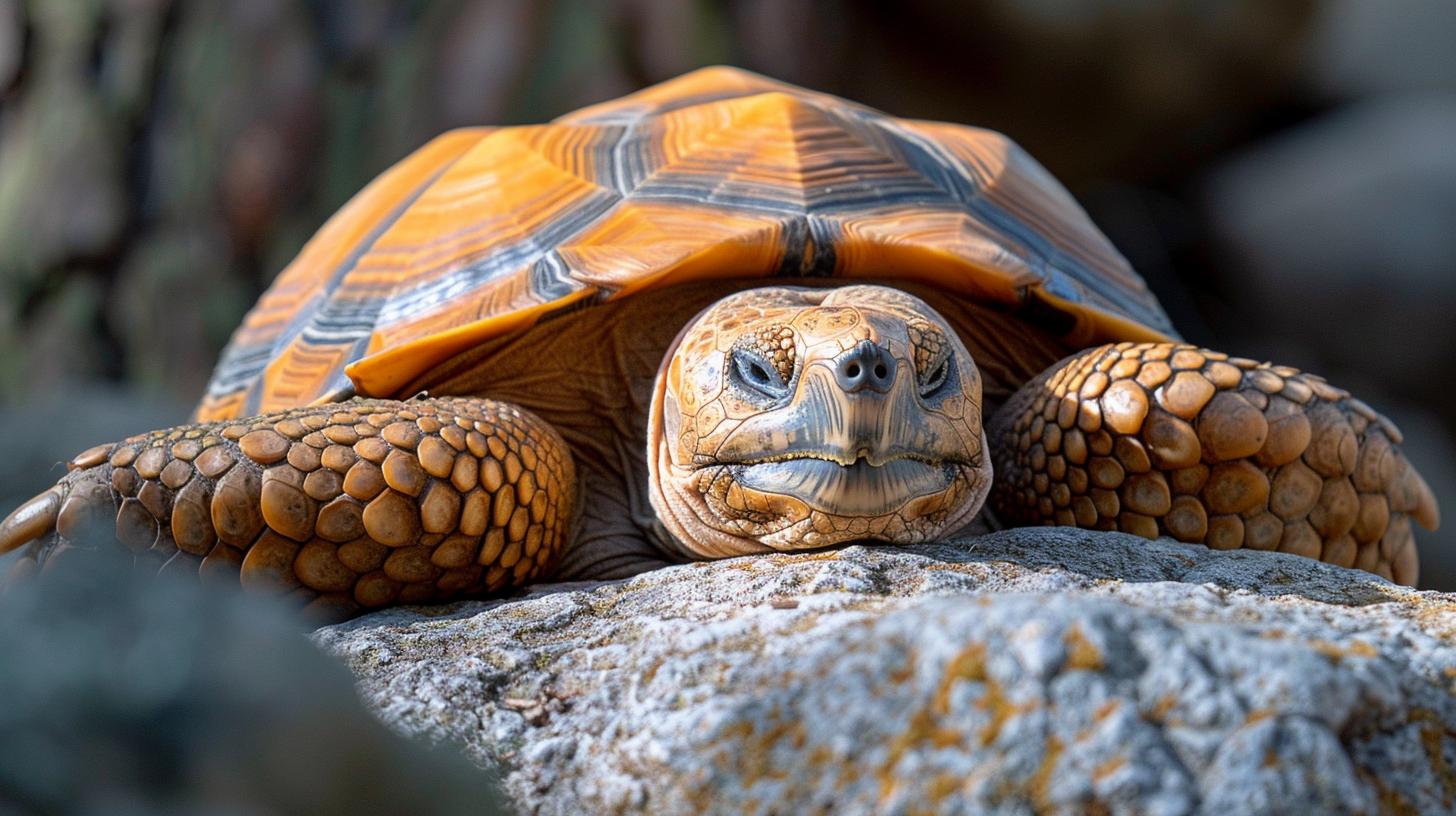5 Best Preventive Health Tips for Tortoise Owners

Why Prioritizing Tortoise Preventive Health Matters
In the realm of pet care, focusing on tortoise preventive health is not just beneficial; it's essential for ensuring these fascinating creatures lead long, healthy lives. Tortoises, known for their impressive lifespan and resilient nature, still rely heavily on their owners to provide an environment conducive to their wellbeing.
This initial focus on prevention can stave off numerous common health issues that plague tortoises, ultimately enhancing their quality of life and allowing them to thrive under human care.
Understanding your tortoise's needs is a foundational step in preventive health. These creatures have specific requirements in terms of habitat, diet, and overall lifestyle that, when met, play a significant role in warding off disease and stress-related ailments.
Each species of tortoise comes with its unique set of needs; grasping these nuances is crucial for any responsible owner aiming to create a nurturing environment for their shelled companion. By tailoring care practices to match these unique requirements closely, owners can significantly bolster the health profile of their pets.
When discussing the right diet for optimal health, nutrition emerges as a pivotal factor in tortoise preventive health A balanced diet prevents nutritional deficiencies or excesses-both common pitfalls that can lead to serious health complications over time.
Moreover, the proper habitat goes beyond mere aesthetics; it's about replicating a tortoise's natural environment as closely as possible to support its physiological and psychological wellbeing. Elements such as temperature control, humidity levels, and UV light exposure don't just affect growth-they're integral components of preventing disease and promoting robust shell and bone development.
Regular health checks stand out as another indispensable tool in the preventive care toolkit. Early detection through routine veterinary visits enables prompt treatment of potential issues before they evolve into significant problems.
Alongside this medical oversight, understanding the telltale signs of common tortoise ailments empowers owners to act swiftly at the first indication of trouble. Together with exercise and enrichment activities tailored to encourage natural behaviors while preventing obesity and stress-related issues, these strategies form a comprehensive approach towards maintaining excellent tortoise health.
Understanding Your Tortoise’s Needs
Ensuring the well-being of your tortoise starts with a deep understanding of its specific needs. Not unlike more common household pets, tortoises require a particular set of conditions to thrive. Unlike cats or dogs, however, the needs of a tortoise are unique and closely tied to their natural habitats.
This intrinsic connection between their health and their environment underscores the significance of tortoise preventive health, emphasizing how crucial it is for owners to replicate natural conditions as closely as possible. A comprehensive grasp of these requirements not only contributes to their physical health but also supports mental wellness, significantly enhancing their quality of life.
Addressing the core needs of a tortoise involves an integrated approach that takes into account diet, habitat, and mental stimulation. Each aspect plays a pivotal role in maintaining optimal health and preventing common issues that can arise from neglect or misinformation.
By focusing on creating a space that reflects their natural environment and catering to dietary needs specific to their species, tortoise owners can lay a solid foundation for preventive health care. This section will delve into these critical areas, offering valuable insights into how best to meet the complex needs of your shelled companion.
Habitat Essentials
Firstly, constructing an appropriate habitat is essential for your tortoise's wellbeing. Critical elements such as temperature regulation, humidity control, and adequate space for movement are non-negotiables when it comes to designing your pet's living area.
An environment that too closely mirrors indoor human living conditions can lead to stress and various health issues in tortoises. For instance, inadequate UV light exposure can impede calcium absorption leading to shell deformities and other skeletal problems-a clear testament to why understanding environmental requirements is key in tortoise preventive health
Dietary Needs for Vital Health
Secondly, diet plays a monumental role in the overall health of a tortoise. It's imperative for owners to recognize that what works for one species may not be suitable for another; dietary needs can vary widely among different types of tortoises.
A balanced diet rich in vitamins and minerals promotes strong shell growth and prevents nutritional deficiencies which are common pitfalls among captive tortoises. For instance, providing a varied mix of leafy greens along with occasional fruits ensures they receive necessary fiber, vitamins C and A-fundamental components in avoiding metabolic diseases.
Creating Stress-Free Surroundings
Lastly, minimalizing stress through environmental management and enrichment activities should be among the top priorities for any diligent tortoise owner looking towards prevention rather than cure − this ties directly back into why meticulous attention on habitat creation was highlighted earlier.
Stress may manifest through behavioral changes or physical symptoms which potentially deteriorate into severe health complications if not addressed appropriately; thus understanding signs of distress becomes instrumental in ensuring ongoing wellness within the framework designed by preemptive measures focused upon throughout this discussion on knowing your tortoises' inherent necessities.
The Right Diet for Optimal Health
A balanced and appropriate diet is a cornerstone of tortoise preventive health. Understanding the specific nutritional requirements of your tortoise is vital, as dietary needs can vary significantly among different species. Providing a diet that mimics what they would eat in their natural habitat contributes to their well-being and helps prevent common health problems such as shell deformities, vitamin deficiencies, and obesity.
Firstly, incorporating a variety of fresh vegetables and fruits into your tortoise's diet is essential. However, it's important to understand the ideal proportions:
- 80-90% leafy greens and vegetables (such as kale, dandelion greens, and bell peppers)
- 10-20% fruits (like apples, berries, and melon)
Certain foods should be avoided or offered in moderation due to their potential negative impact on health. Foods high in oxalates, like spinach, can bind with calcium making it unavailable to the tortoise which could lead to shell problems. Similarly, excessive consumption of fruits with high sugar content could lead to digestive issues.

To support a balanced diet, ensuring access to clean water at all times is equally critical for hydration and facilitating digestion. A shallow water dish where they can easily drink from without the risk of drowning promotes good hydration habits.
Additionally, *supplementation* plays a pivotal role in tortoise preventive health. Calcium supplements are often required to support shell growth and bone health particularly for indoor tortoises with limited exposure to natural sunlight or UVB light sources. It's advisable to consult with a veterinarian specializing in reptiles to determine the necessity and frequency of supplementation based on individual needs.
Understanding the intricate balance of nutrition required not only prevents immediate concerns but also secures long-term health benefits for your pet tortoise. The key lies in diversity, moderation, and adherence to species-specific dietary guidelines-garnering significant rewards in enhancing your tortoise's life span and quality of life.
As we continue exploring essential aspects that contribute toward enriching our tortoises' lives while preventing common ailments through proactive measures rather than reactive solutions let us delve deeper into other crucial elements beyond nutrition that play an instrumental role in achieving optimal health conditions for our shelled companions.
The Importance of a Proper Habitat
Creating an appropriate habitat for your tortoise requires understanding and dedication. A proper habitat is not merely about aesthetics; it's fundamentally about health. For tortoises, their living environment significantly impacts their physical and emotional well-being, making it a cornerstone of tortoise preventive health. Unlike other pets that might adapt to less than ideal conditions, tortoises thrive when their habitat closely mimics their natural environment. This includes aspects like temperature, humidity, substrate, and space.
- Temperature control is critical to a tortoise's health. These reptiles are ectothermic, relying on their environment to regulate body temperature. Owners need to provide a gradient range within the enclosure - a warmer basking area and a cooler zone for resting. The exact temperatures required can vary depending on the species of tortoise but ensuring this variation can prevent respiratory issues and aid in proper digestion.
- Humidity levels play a significant role in preventing shell problems, such as pyramiding in growing tortoises. This condition often results from inadequate humidity coupled with poor nutrition. Therefore, maintaining the right humidity level in the habitat is essential for shell development and overall health.
- A *spacious enclosure* allows for adequate movement and exercise, crucial factors in preventing obesity and promoting healthy shell growth. The space requirement depends on the tortoise's size and species.
Moreover, exposure to natural or artificial UV light is indispensable for calcium metabolism, which directly affects shell and bone health. UVB light enables tortoises to synthesize vitamin D3 necessary for calcium absorption from their diet. Without adequate UVB exposure, they can develop metabolic bone disease-a common yet preventable condition among captive tortoises.
Integrating these elements into your pet's living space will not only bolster its physical health but enrich its quality of life by encouraging natural behaviors such as exploring and basking. As you consider these habitat essentials-temperature regulation, adequate humidity levels, sufficient space for movement, and proper lighting-you lay a firm foundation for your tortoise's longevity and vitality.
Continuing on this path of comprehensive care demands constant vigilance but rewards both the pet owner with peace of mind knowing they've provided an optimal environment conducive to sustaining good health amongst these fascinating creatures By prioritizing these requirements today you are building blocks of robust *tortoise preventive health* strategies that protect against many common ailments associated with inadequate husbandry practices tomorrow.
Regular Health Checks and Early Detection
Initiating a steadfast routine of regular health checks is not merely an added benefit but a fundamental aspect of tortoise preventive health. These evaluations serve as a critical tool in identifying subtle changes or emerging issues before they escalate into severe problems.
Early detection, facilitated through meticulous observation and professional veterinary assessments, can greatly influence the outcome of many tortoise health conditions. By setting a precedent for proactive health management, tortoise owners can significantly minimize the incidence of illness, ensuring their pets lead longer, healthier lives.
Understanding the scope and frequency of these health checks is essential. For most tortoises, a yearly visit to a veterinarian experienced in reptile care is advisable. However, more frequent visits may be necessary for baby tortoises or those with existing health concerns.
During these consultations, vets typically conduct thorough physical examinations, weigh-ins to monitor growth or weight loss, and discuss any behavioral changes observed by the owner. This collaborative effort between the vet and the owner lays the foundation for robust tortoise preventive health strategies.
Veterinary visits are paramount in identifying potential health issues that might not be apparent to even the most observant owners. These engagements allow professionals to administer essential tests such as fecal exams for parasites or blood work to assess overall well-being. Highlighting this importance in your care routine encourages an ethos of prevention over cure - cornerstone advice for all aspects related to promoting longevity and vitality in tortoises.

Spotting Warning Signs Early
In addition to scheduled veterinary checks, tortoise owners must become adept at recognizing early signs of distress or illness in their pets. Symptoms such as lethargy, loss of appetite, abnormal shell conditions, and irregular excretion patterns signal that it's time for immediate action. By cultivating an intimate knowledge of their tortoise's normal behavior and physical state, owners play a crucial role in early detection efforts.
Embracing an informed approach towards tortoise preventive health practices encapsulates regular health monitoring and prompt intervention when anomalies arise. This vigilant stance not only enhances the well-being of these cherished companions but also fortifies the bond between them and their caretakers through dedicated stewardship over their life span.
Exercise and Enrichment Activities
Tortoises, much like any other pet, benefit significantly from a holistic approach to their health and well-being. This approach includes not only diet and habitat but also the incorporation of regular exercise and enrichment activities into their routine. Engaging your tortoise in physical activity is not just about movement; it's about fostering natural behaviors, preventing stress, and avoiding common health problems like obesity, which can severely impact their quality of life.
Exercise for a tortoise may sound unusual at first; after all, these creatures are not known for their speed or agility. However, ensuring that your pet has enough space to roam around is crucial for its mental and physical health. A dedicated enclosure with ample room allows them to explore, climb slightly uneven surfaces, and engage in normal tortoise behavior.
Incorporating elements such as shallow water pools for swimming or different substrates to dig in can further enhance their living environment. These activities help maintain muscle tone, encourage natural behaviors, and prevent boredom.
Enrichment activities go hand-in-hand with exercise in providing a stimulus-rich environment for tortoises. Adding plants (that are safe if ingested), rocks to climb over or hide under, and changing the layout periodically can stimulate their minds and keep them active.
Moreover, interactive feeding strategies such as scatter feeding or using food puzzles can promote problem-solving skills and extend feeding times to more closely resemble foraging behavior in the wild. Through thoughtful integration of both exercise options and enrichment activities in your tortoise preventive health plan, you contribute significantly towards a happier, healthier pet with less risk of common lifestyle-induced health issues.
Bringing It All Together
As we journey through the essentials of tortoise preventive health, it becomes clear that holistic care is not merely a choice but a necessity for the well-being of our shelled companions. The insights provided serve as a comprehensive guide to understanding and implementing practical steps towards achieving optimal health for tortoises.
From highlighting the importance of proactive health management, detailing nutritional needs, to explaining the critical elements of a suitable habitat, each section builds on the last, underlining the interconnectedness of these factors in fostering a thriving life for your tortoise.
Embarking on this path requires attention to detail and dedication. Regular health checks stand out as an indispensable practice, ensuring any signs of distress or illness are caught early and addressed with professional guidance.
Similarly, recognizing the importance of mental and physical stimulation underscores our role in enhancing their quality of life. This article doesn't just offer guidelines; it encourages a deeper understanding and bond between tortoises and their owners, fostering an environment where preventive care transcends duty to become a shared journey.
We invite you now to delve further into our collection of articles tailored to pet enthusiasts who seek to enrich their knowledge and skills in caring for their pets. Whether your interest lies in broadening your understanding of preventive health measures or discovering new ways to engage with your pet, we have an abundance of resources waiting for you. Dive into our world where every article promises revelations and practical tips designed to elevate your pet care experience.
Frequently Asked Questions
What Do Tortoises Need to Be Healthy?
To ensure a tortoise stays healthy, it needs a balanced diet primarily made up of leafy greens and occasional fruits, access to ultraviolet light for bone health, and regular vet check-ups. A clean habitat that mimics their natural environment as closely as possible with proper temperature regulation is also crucial.
Are Tortoises High Maintenance?
Tortoises are relatively low-maintenance compared to other pets, but they do require specific care. They need a well-structured diet, appropriate habitat conditions including humidity and temperature control, and regular health checks to prevent common illnesses. Their need for space and specific dietary requirements can be challenging for new owners.
How Do I Keep My Tortoise Happy and Healthy?
Keeping your tortoise happy and healthy involves creating a stimulating environment that includes space to explore and hide. Regular exposure to natural sunlight or UVB light is necessary for their shell development and overall health. A varied diet rich in calcium and vitamins ensures nutritional balance, while clean living conditions prevent disease.
What Do You Need to Take Care of a Tortoise?
Taking care of a tortoise requires providing a spacious enclosure with a heat source to regulate their body temperature, UV lighting for vitamin D synthesis necessary for shell development, substrate for burrowing, and water dishes for hydration baths. Their diet should mainly consist of fresh vegetables with the occasional fruit treat.
Does My Tortoise Need Supplements?
Yes, tortoises often require supplements to maintain optimal health because their diets may lack certain nutrients essential for shell growth and prevention of metabolic bone disease. Calcium supplements are commonly needed alongside vitamin D3 if adequate exposure to UVB light isn't available to help with calcium absorption.
How Can I Boost My Tortoise Immune System?
Boosting your tortoise's immune system can be achieved by ensuring they have a balanced diet rich in vitamins A, C, D3, E, and Zinc which support immune function. Providing an optimal living environment that includes appropriate levels of UVB lighting, maintaining cleanliness in their habitat to reduce stress, and avoiding overcrowding can also promote a strong immune system.
Leave a Reply
You must be logged in to post a comment.